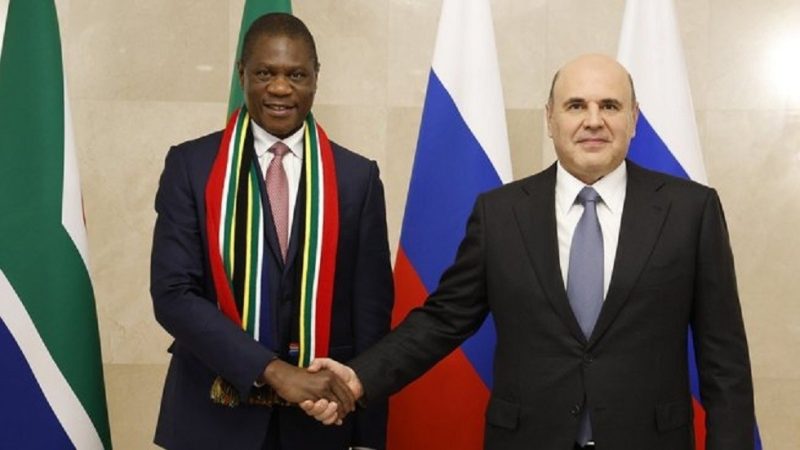
South Africa is making a significant move to bolster its economic ties with Russia, aiming to double its trade volume with the Eurasian nation. This ambitious goal was revealed following a high-level meeting between South African officials and Russian Prime Minister Mikhail Mishustin. The discussions focused on strengthening bilateral relations across various sectors, signaling a potential shift in the economic landscape for both countries.
South African Vice President Paul Mashatile led the delegation in these crucial talks. While specific details of the agreements remain undisclosed, the commitment to doubling trade suggests a concerted effort to identify and capitalize on new opportunities for cooperation. This could involve expanding existing trade relationships in areas like minerals, agriculture, and energy, or exploring entirely new avenues for collaboration.
The timing of this push is noteworthy, given the complex geopolitical landscape and the ongoing sanctions imposed on Russia by several Western nations. South Africa’s decision to deepen its economic ties with Russia demonstrates a strategic approach to diversification and potentially a willingness to navigate the global economic currents independently. This move could have significant implications for South Africa’s place in the international community and its relationships with other trading partners.
The success of this ambitious plan will hinge on several factors, including the ability to overcome logistical hurdles, secure investment, and address any potential regulatory challenges. Further details about specific initiatives and timelines will be crucial in assessing the feasibility and potential impact of this bold trade objective. The coming months and years will likely shed more light on the specifics of this burgeoning partnership and its overall success.
It remains to be seen how this increased trade will impact both economies and their respective relationships with other global players. The international community will undoubtedly be watching closely as this significant economic partnership develops. The potential benefits are substantial, but the challenges should not be underestimated. The coming years will be crucial in evaluating the long-term implications of this ambitious undertaking.










